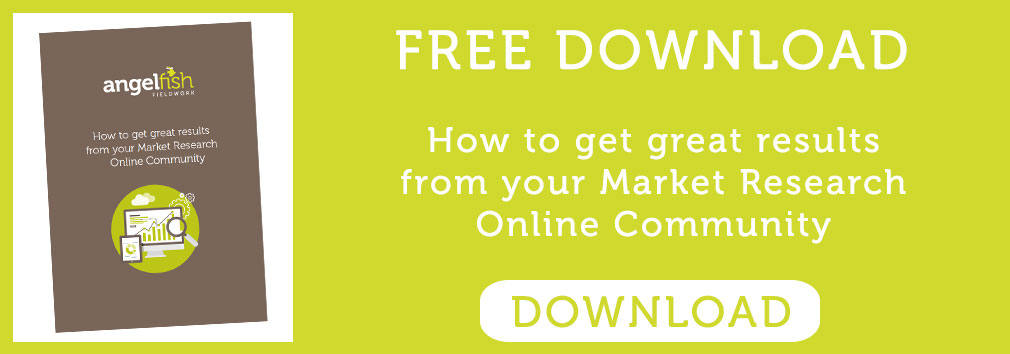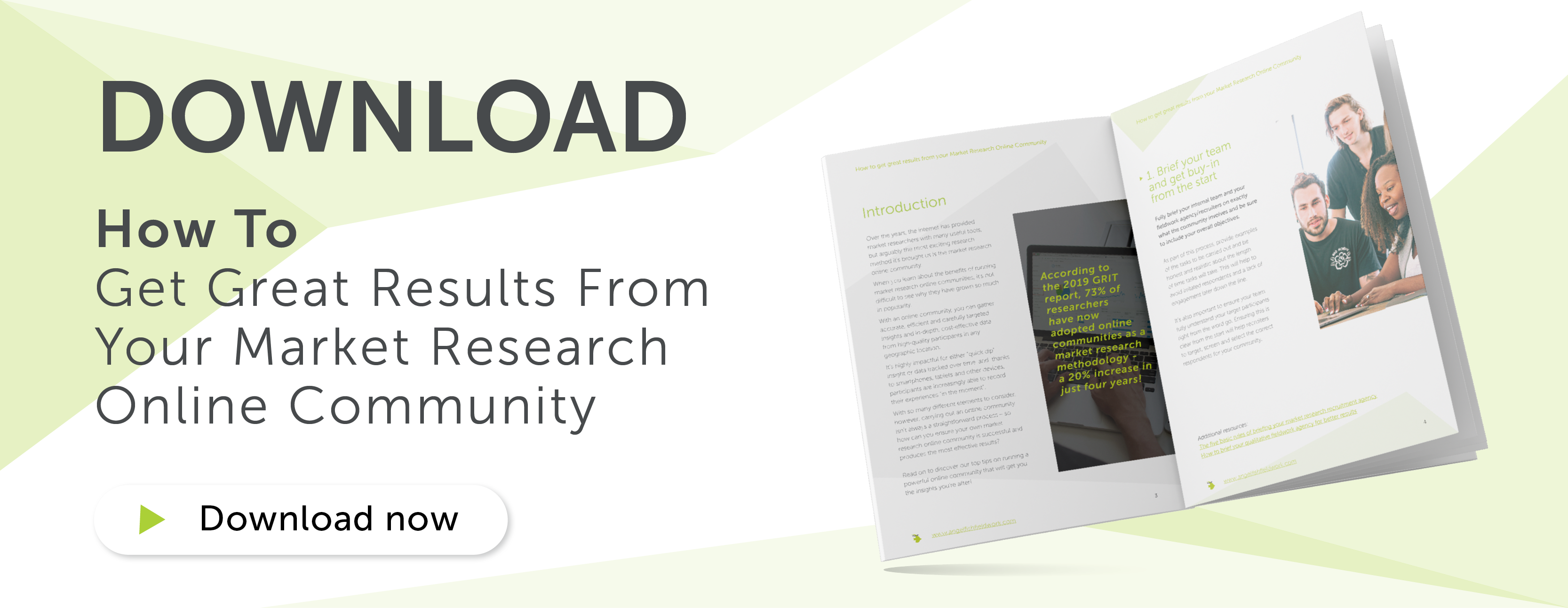
Planning a market research online community? Avoid these six mistakes!
One of the fastest growing methods of qualitative research in recent years is the market research online community (MROC). They have many insights to offer researchers, but managing them can be a challenge. Here are 6 common mistakes that you don’t want to make with your next market research online community.
1. Not doing your research.
A market research online community is its own kind of ecosystem that requires skilful management. Before starting one, you must carefully research the types of software that you will need to run it from a technical standpoint, you need to understand how to effectively interact with participants online, and you should be aware of what kinds of tasks work best in this environment. For example, if you are planning to do a diary task or have participants respond to a poll, find out how the software will facilitate these activities – does it have any restrictions you should know about, or, more beneficially, any special features that can draw out even more insights from the task?
2. Not planning effectively
If your MROC is going to be a well-functioning online community, you have to put some real thought into how it is set up. You don’t want to structure it so rigidly that participants feel constricted, but rather create a loose blueprint that provides guidance while also allowing for flexibility. Having what activities you’d like participants to complete prepared ahead of time means you won’t be wasting participants’ time. It also ensures that you will get the information you need and won’t have to be adding tasks at the last minute, meaning that you can focus your attention on the responses that you are receiving once your market research online community is under way.
3. Not having a recruitment strategy
You can’t invite just anyone into your community – and if you do, you likely won’t get the results you’re looking for. A recruitment strategy is vital. Knowing who you want to recruit for your MROC will help you to decide on the best qualitative research recruitment methods, whether it’s using panels, internet advertising, finding people on forums, or utilising social media. Thorough screeners and a solid validation process are critical aspects of a good recruitment strategy, as they will help you ensure that the selected participants meet your criteria. Once you have recruited your participants, you must be sure to have a plan for how they will be handled for the duration of the market research online community.
Determine how often you want to follow-up with them, how you will follow-up with them (e.g., calling, emailing), and who will be responsible for doing this – this will also help to reduce the number of participants that drop out during the community. Build this into your recruitment strategy so that if you are using an agency or a freelancer, they are aware that this is an important part of the process.
4. Not briefing participants
You aren’t the only one that has to be prepared for an online community – the participants must be as well. Going into a situation with the wrong expectations can greatly affect the way people behave in it, often for the worse. That’s why briefing participants on what the community will be like and what their role is in it can help ensure that they enjoy the experience and get the most out of it. Helping them warm up to the environment and letting them know what types of tasks they will be doing will make them feel more comfortable and more eager to actively participate. Consider putting together an introduction sheet or “welcome pack” to make them feel more at home and to boost engagement.
5. Not creating enough stimulating tasks
Even the most well-prepared, well-meaning, and properly incentivised participants are still human, and can, therefore, get bored by dull or repetitive tasks (especially if those dull tasks are getting in the way of more pressing day-to-day priorities). When planning tasks for the MROC, be sure to change them up here and there, and do your best to make them stimulating. Ideally, the tasks should be fun, interesting, and perhaps even a little challenging. They should always be thought-provoking and designed to draw out valuable insights from participants. Be open to learning as you go along, because you may find that some of the feedback you get from initial tasks will inspire you to alter new ones for the better.

6. Not becoming familiar with the technology
Always make sure you are comfortable with the technology that you will be using and that everything is working optimally well in advance of starting the market research online community. Once it begins, you will have your hands full dealing with participants and content, so the last thing you want to be hassling with is tech support. This is important not only on your end, but also where the participants are concerned. If they are encountering glitches or technical problems early on, they could become frustrated and drop out of the community.
It is smart to do some test runs with your software or any other technology you are using ahead of time, so that you can work out the kinks and be ready for smooth sailing when the MROC actually gets in gear. Also know who your tech support people are and who you ought to contact if any problems arise. Communicate this information clearly to the MROC participants and have it readily accessible to them if they need it.
Now that you know what NOT to do when managing a market research online community, it’s time to discuss proactive steps you can take to run a great MROC.
Enjoy our download on Tips for Managing a Successful MROC:














